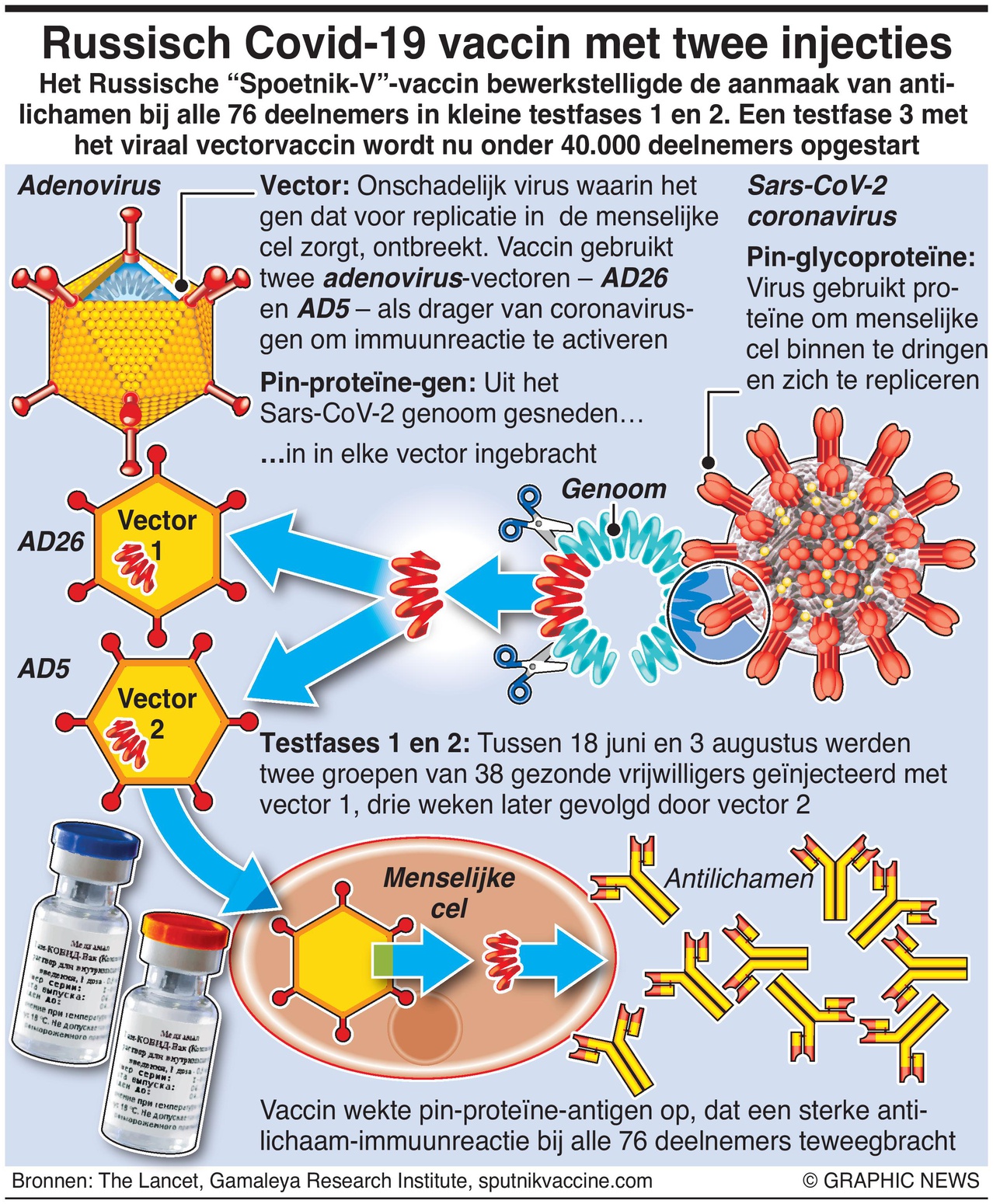September 8, 2020 – Russia’s “Sputnik-V” vaccine produced an antibody response in all the 76 participants in phase 1/2 trials. The so-called viral vector vaccine has now started a 40,000-strong phase 3 trial.
Viral vector vaccines employ a harmless version of another virus that lacks the gene responsible for replication in a human host cell. Vectors carry the genetic material to trigger the required immune response. Sputnik-V employs a “spike glycoprotein” gene which the virus uses to enter a human cell. Sputnik-V uses two adenovirus vectors to carry the gene, AD26 or AD5.
Scientists at the Moscow-based Gamaleya Research Institute have been working on adenoviral vector-based vaccines since the 1980s.
According to an initial study published in the medical journal, The Lancet, on September 4, Gamaleya scientists ran two open, non-randomised phase 1 and 2 trials at two hospitals in Russia.
Between June 18 and August 3, 2020, they enrolled 76 healthy adult volunteers aged 18–60 years in the two trials. In each study, groups of 38 volunteers received intramuscular Ad26 in the upper arm with AD26, followed by AD5, 21 days later. All participants produced antibodies to SARS-CoV-2 glycoprotein.
The study reports that both vaccine formulations were safe and well-tolerated. The most common adverse events were pain at the injection site (58%), hyperthermia (50%) and headache (42%). Most adverse events were mild.
In normal vaccine development, phase 1 trials assess adverse reactions and immunogenicity — whether the vaccine produces antibodies — and take several months. Phase 2 involves hundreds of volunteers from different age and risk groups, in a randomised trial, to further test the safety and optimal dosage. This trial typically lasts several months to two years. Phase 3 verifies safety and efficacy among thousands of volunteers.
Gamaleya has telescoped phase 1 and 2 into just over seven weeks, attracting criticism of bypassing normal vaccine development.
Mass production will begin in September. Sputnik-V should provide immunity from SARS-CoV-2, the coronavirus that causes Covid-19, for up to two years.




